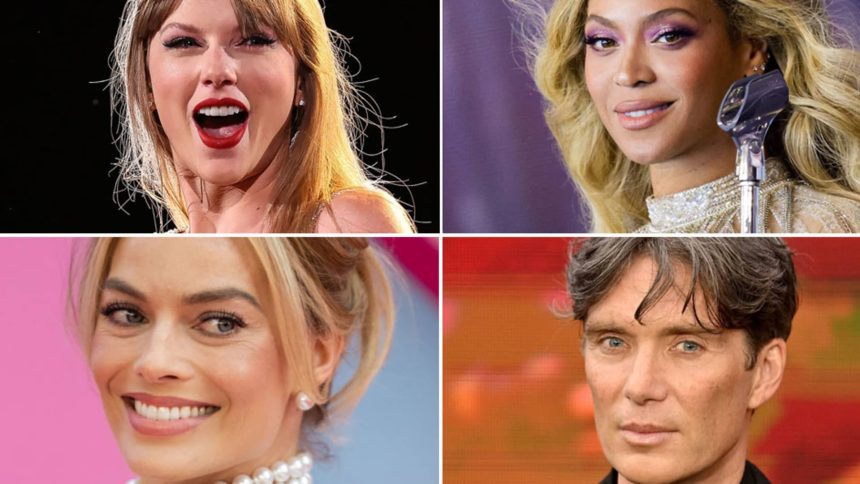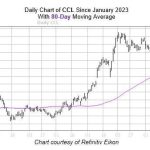Consumer spending may not be out of the woods.
Real spending is expected to come in 1.9% higher in the third quarter, helped in part by stadium tours from music superstars Taylor Swift and Beyoncé, as well as summer movie blockbusters “Barbie” and “Oppenheimer,” according to Morgan Stanley. But the economic halo may be short lived, the firm warned on Wednesday.
Taken together, Morgan Stanley economist Sarah Wolfe said the “unprecedented” revenues tied to these events should add a seventh of one percentage point to consumption growth in the quarter. They fall under the movie consumption and non-sports live entertainment portions of the personal-consumption expenditures price index, known as the PCE.
Those sectors make up around 0.2% and 0.05% of the total index, respectively. That means fans showed up and spent enough in these typically miniscule business areas to substantially boost the health of the broader U.S. economy.
“These categories alone would have to see massive swings in order to impact overall economic activity,” Wolfe said in a note to clients. “And they have.”
But the end of those music tours in the U.S. and declining theater viewership for these films the rest of the year could lead to a 0.6-percentage-point “hangover effect” to consumer spending in the fourth quarter. Simultaneously, Wolfe said the return of student loan payments this fall should pull consumption down another by another eighth of a percentage point.
“The factors boosting 3Q consumption are extraordinary,” Wolfe said. “In 4Q, these factors not only unwind, but the October expiration of the student loan moratorium further weighs on consumption.”
A not-so-cruel summer
Taylor Swift’s “Eras” and Beyoncé’s “Renaissance” tours have filled stadiums around the country and created online buzz.
Swift’s tour, in particular, has garnered attention for its expensive resale market and ticket purchasing fiasco that brought scrutiny to Ticketmaster from fans and lawmakers alike. Beyoncé made national headlines for paying to keep Washington, D.C.’s, metro system running later after her show was delayed by inclement weather.
Both tours have been credited for boosting the economies of the cities they visit as fans crisscross the country for their chance to see the singers. The concerts and movies combined have also inspired attendees to dress the part, encouraging further spending on new outfits and accessories like friendship bracelets and custom black fedoras.
The impact has garnered the attention of everyone ranging from local business owners to the Federal Reserve. Last month, the Philadelphia Fed reported hotel bookings when Swift came to town showed their strongest growth since the pandemic began.
“Despite the slowing recovery in tourism in the region overall, one contact highlighted that May was the strongest month for hotel revenue in Philadelphia since the onset of the pandemic, in large part due to an influx of guests for the Taylor Swift concerts in the city,” the central bank officials said in the Beige Book, a summary of economic activity released eight times a year.
Swift announced on Thursday that a filmed version of her tour will debut in theatres on Oct. 13, the same day as the new “Exorcist” film from Blumhouse Productions and Universal. The pair has become known online as #Exorswift. While the tour film can provide a bump to movie ticket sales, the fourth quarter is already expected to see strong sales given its proximity to the Oscars.
It’s the second time this year that two unrelated movies released on the same day have become intertwined. Warner Bros. “Barbie” and Universal’s “Oppenheimer” became known as “Barbenheimer,” and the pair supercharged box office numbers last month even as two Hollywood union strikes have essentially halted movie production.
“Barbie” has become the highest-grossing release in the U.S. this year, while “Oppenheimer” is now director Christopher Nolan’s third best performing movie ever, domestically. With help from other films, the opening weekend was the fourth biggest ever for the U.S. box office.
Retailers have jumped on the Barbie craze in particular, hawking themed goods from heeled shoes to pool floaties.
Gray November?
Wolfe noted that the drag on consumer spending from the end of the student loan moratorium has been somewhat mitigated by the Biden administration’s 12-month grace period. Under this plan, borrowers who fail to make payments for the first year will be spared from some of the harshest consequences.
With the tours and the movies winding down, Wolfe’s team anticipates the real PCE will contract by 0.6% between the third and fourth quarter. Real gross domestic product should eke out a 0.1% gain in the fourth quarter.
That shift could catch the attention of the Fed, according to Wolfe. She thinks the central bank, which is still waging war on inflation, should take the cultural slowdown as another reason to be patient when deciding on the future path of interest rates.
Disclosure: Comcast owns Universal and NBCUniversal, the parent company of CNBC.
Read the full article here




